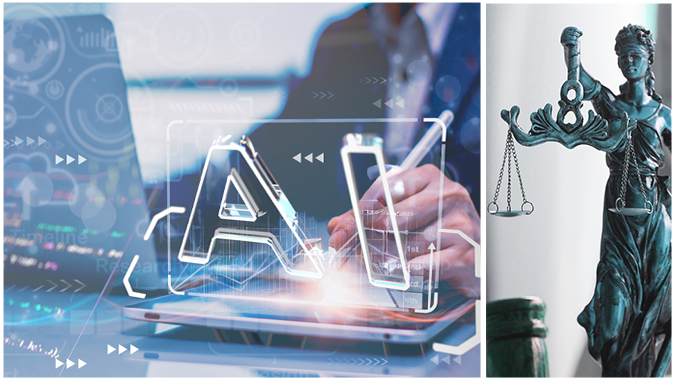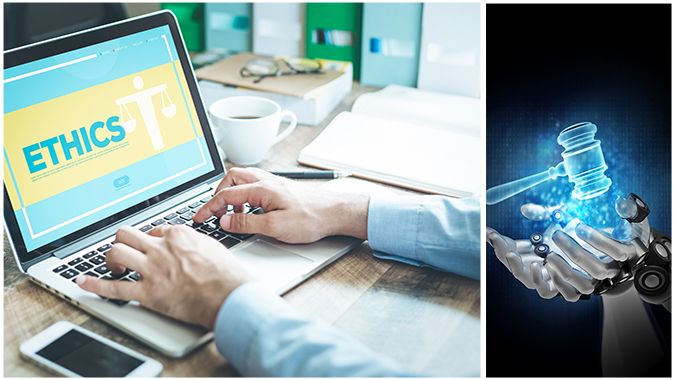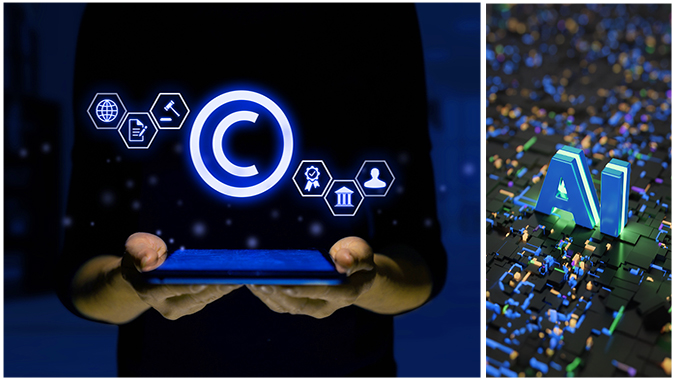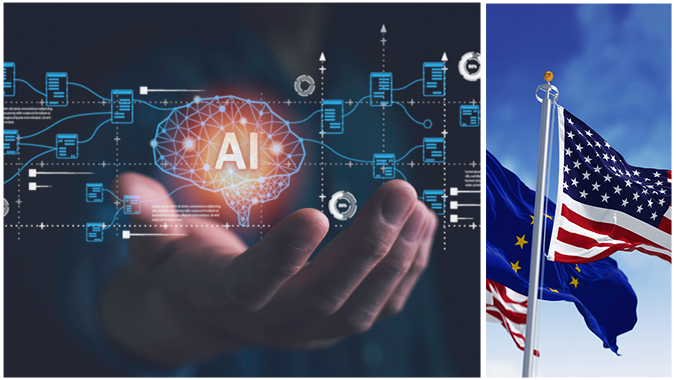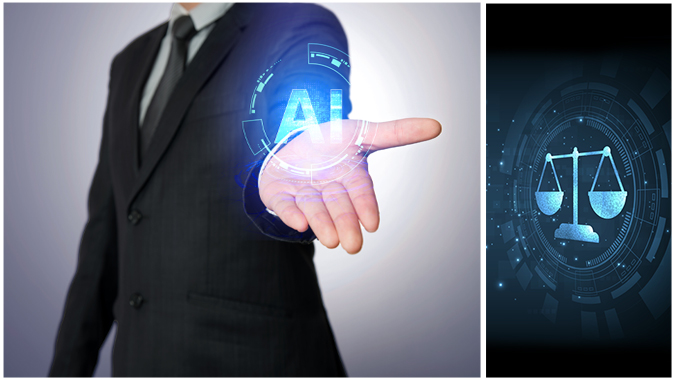Artificial Intelligence and Generative Artificial Intelligence: What attorneys and their legal teams need to know




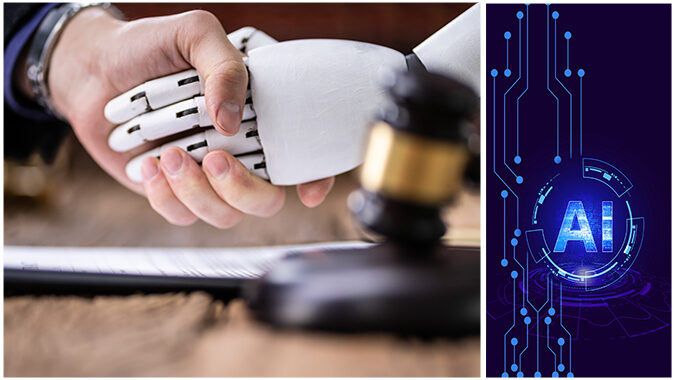
$195.00 1.5 hour CLE
MCLE Credit Information:
Select Your State Below to View CLE Credit Information
Can't Decide Which CLE Program?
Access All
myLawCLE Programs
Only
$395yr
Annual Subscription includes access to:
- 500+ Live CLE Webinars
- National Hot Legal Topics
- New Laws and Regulations
- State Specific Programs
- All Formats: Live, Replay, & On-Demand
Training 5 or more people?
Sign-up for a law firm subscription plan and each attorney in the firm receives free access to all CLE Programs
Program Summary
Artificial intelligence (AI) and Generative AI (GAI) are impacting how companies do business in transformative ways, such as providing strategic operational decisions on staffing their workforce and selection of consumers who are the best credit risks, with greater efficiency and speed. Law firms are not immune and are using GAI in generating legal documents, such as contracts and pleadings. However, the use of AI and GAI is not without legal peril. This panel will delve into the fascinating realm where this cutting-edge technology intersects with the complex world of law and litigation and offer guidance on mitigating legal and regulatory risks.
Key topics to be discussed:
- Artificial Intelligence (AI) and Generative Artificial Intelligence (GAI)
- AI in Discovery (Civil & Criminal)
- AI in Hiring
- AI in Admissibility & Its Use at Court Hearings/Trials
- Legal Ethics of AI Use by Attorneys
- Judicial Reaction to GAI
Date / Time: September 15, 2023
![]() Closed-captioning available
Closed-captioning available
Speakers
 Stephanie Wilson | Reed Smith LLP
Stephanie Wilson | Reed Smith LLP
Stephanie Wilson is a senior counsel in Reed Smith’s Financial Industries Group and is resident in its Princeton, NJ office. Stephanie specializes in defending employment, discrimination and retaliation related administrative claims and lawsuits impacting financial services companies. In addition to counseling companies on risk avoidance and their compliance programs, a significant part of Stephanie’s practice involves advising clients on properly using algorithms in their decision-making processes and litigating disparate treatment and impact claims before administrative agencies and courts associated with the use of algorithms.
With over two decades of experience assisting companiesdevelop, implement, and improve their employment processes, Stephanie has achieved national prominence for her ability to provide companies grappling with a rapidly evolving regulatory and business environment pragmatic advice at the intersection of technology, business, employment and law. Stephanie’s overall objectives are to assist companies achieve their strategic business goals while minimizing risk.
Stephanie earned her BA at Yale University and her JD at Columbia University School of Law. She is First Vice Chair of the Labor and Employment Law Section of the New Jersey State Bar Association and a Fellow of the College of Labor and Employment Lawyers.
 Ronald J. Hedges | Ronald J. Hedges LLC
Ronald J. Hedges | Ronald J. Hedges LLC
Ronald J. Hedges is the Principal of Ronald J. Hedges LLC. He served as a United States Magistrate Judge in the District of New Jersey for over 20 years. Ron speaks and writes on a variety of topics, many of which are related to electronic information, including procedural and substantive criminal law, information governance, litigation management, and integration of new technologies such as artificial intelligence into existing information governance policies and procedures. Among other things, Ron is the chair of the Court Technology Committee of the Judicial Division of the ABA. He is the lead author of a guide for federal judges on electronically stored information. Ron is also the co-senior editor of The Sedona Conference Cooperation Proclamation, Resources for the Judiciary, Third Edition (June 2020) and the 2022 supplement thereto. He is also the editor of various compendiums on electronic information in criminal investigations and proceedings hosted by the Massachusetts Attorney General’s Office. He can be reached at r_hedges@live.com.
 Marissa J. Moran | City University of New York (CUNY)
Marissa J. Moran | City University of New York (CUNY)
Marissa J. Moran is an attorney admitted to practice before the U.S. Supreme Court, New York State, New Jersey, and the United States District Courts. She received her B.A. in Economics from Fordham University and her law degree from Brooklyn Law School. While in law school she interned at the U.S. Attorney’s Office, Southern District of New York and upon graduation, clerked for U.S. Bankruptcy Chief Judge Burton R. Lifland in the Southern District of New York. She later worked as an associate at two New York law firms, Kaye, Scholer, Fierman, Hays & Handler and Emmet, Marvin & Martin.
She is currently a professor in City University of New York, Department of Law and Paralegal Studies, New York City College of Technology, where she teaches Legal Technology, Forensic Science & The Legal Process, Legal Ethics and Professional Responsibilities,and Theatre of Law. Marissa served as the college’s grievance counselor and chaired the Faculty Student Disciplinary Committee. She has also taught business law courses as an adjunct clinical professor at NYU, Stern School of Business.
Marissa has written articles for the Legal Educator, a publication of the American Association of Paralegal Educators, and has spoken at several New York State Bar Association CLEs and Paralegal Educator National and Local conferences on such topics as Legal Technology, Artificial Intelligence, Cybersecurity, and Forensic Science & Law. Most recently, her article on biometrics and facial recognition technology was featured as the cover article in the May/June 2023 New York State Bar Association Journal.
Marissa has served as a judge for the We the People High School Competitions, Mock Trial NYC High School Tournaments, the ABA Law Student Division, National Appellate Advocacy Competitions (NAAC), the ABA Dispute Resolution/Mediation Competitions, and Cardozo Law School Monrad G. Paulsen Moot Court Competitions, International Moot Court Honor Society, Oxford Competitions, BMI Entertainment and Media Moot Court Competitions, and the Monroe Price Media Law Moot Court Competitions.
She is a member of the New York State Bar Association Task Force on Artificial Intelligence, the Vice Chair of the NYSBA Committee on Technology and the Legal Profession, and a member of the NYSBA Committee on Continuing Legal Education, NYSBA Committee on Committees on Committees, the ABA International Law Section, Privacy, Cybersecurity and Digital Rights Committee, and the International Legal Education and Specialist Certification Committee.
 Catherine Casey | Reveal Brainspace
Catherine Casey | Reveal Brainspace
Cat Casey is Chief Growth Officer at Reveal Brainspace, helping lead innovation and direction for their legal technology solutions. She is a thought leader and outspoken advocate of legal professionals embracing technology to deliver better legal outcomes. Cat has over a decade and a half of experience assisting clients with complex eDiscovery and forensic needs that arise from litigation, expansive regulation and complex contractual relationships.
Before Reveal, Cat was the Chief Innovation Officer for a leading Legal AI company and the Global leader for eDiscovery at Gibson Dunn. She led a global team comprised of experienced practitioners in the areas ofelectronic discovery, data privacy, and information governance. Prior to that, she was a leader in the Forensic Technology Practice for PwC and the national subject matter expert on eDiscovery at KPMG.
Cat graduated cum laude from Harvard University and attended Pepperdine School of Law.
Agenda
I. Artificial Intelligence (AI) and Generative Artificial Intelligence (GAI) | 1:00pm – 1:10pm
II. AI in Discovery (Civil & Criminal) | 1:10pm – 1:25pm
III. AI in Hiring | 1:25pm – 1:40pm
IV. AI in Admissibility & Its Use at Court Hearings/Trials | 1:40pm – 2:00pm
Break | 2:00pm – 2:10pm
V. Legal Ethics of AI Use by Attorneys | 2:10pm – 2:25pm
VI. Judicial Reaction to GAI | 2:25pm – 2:40pm

